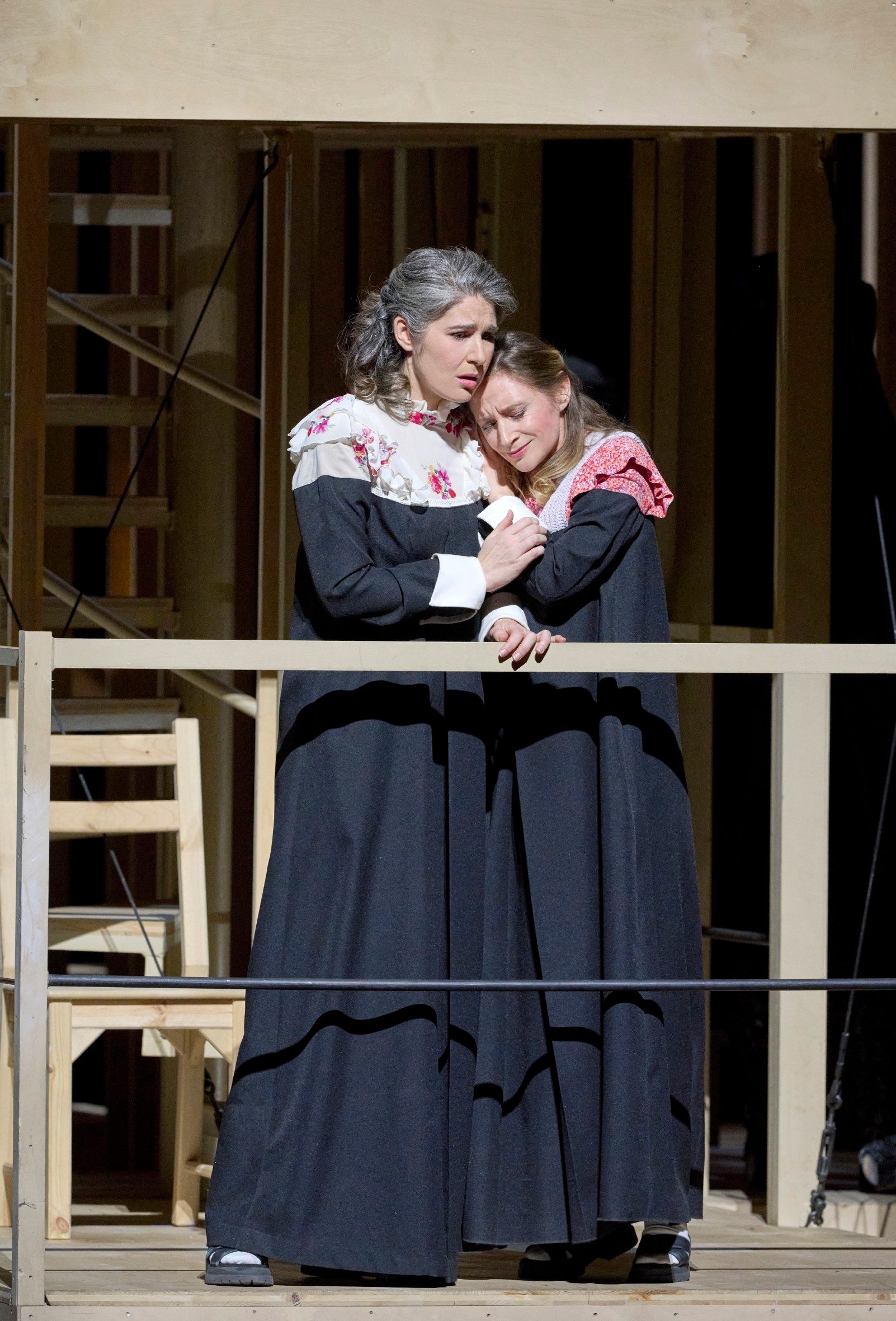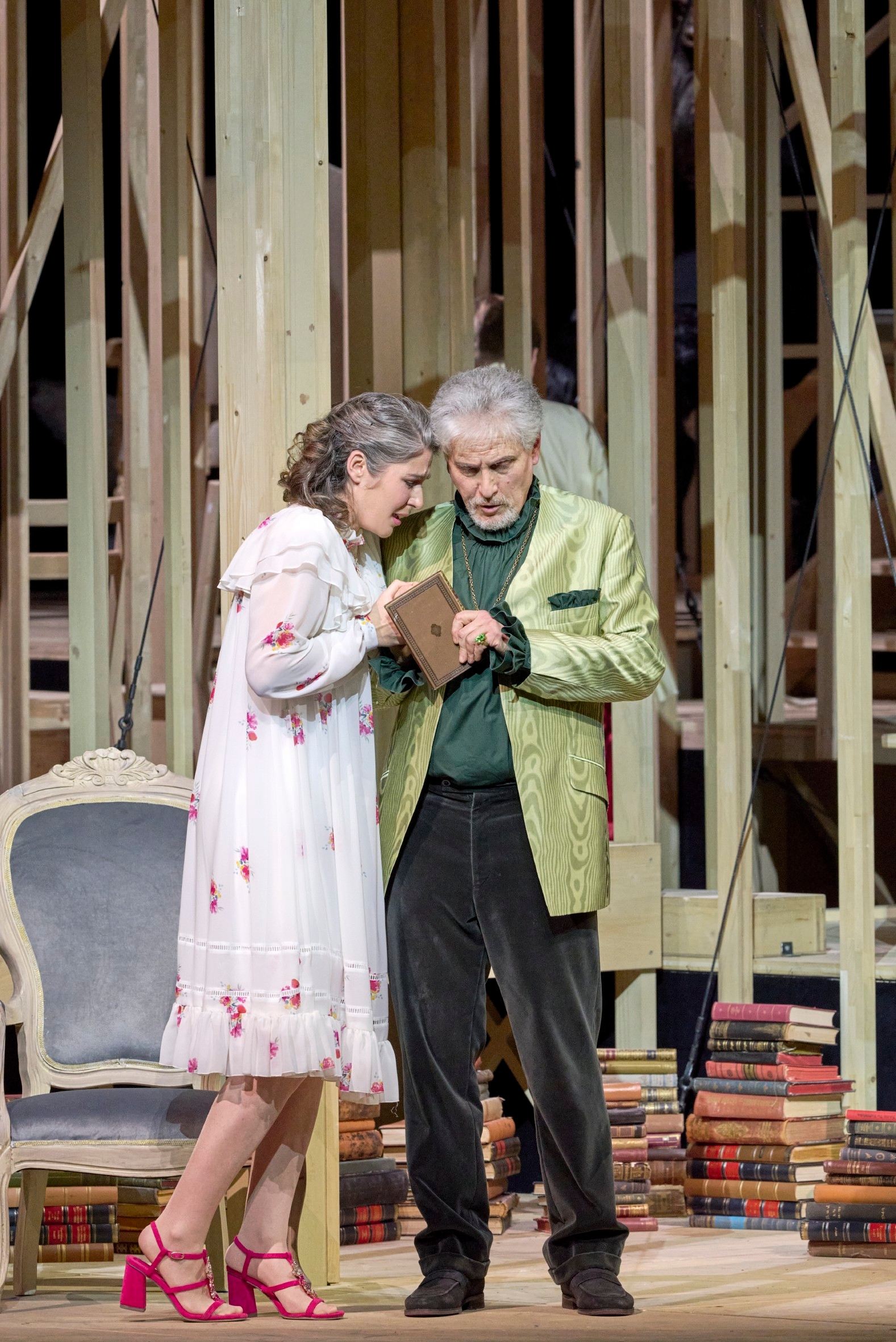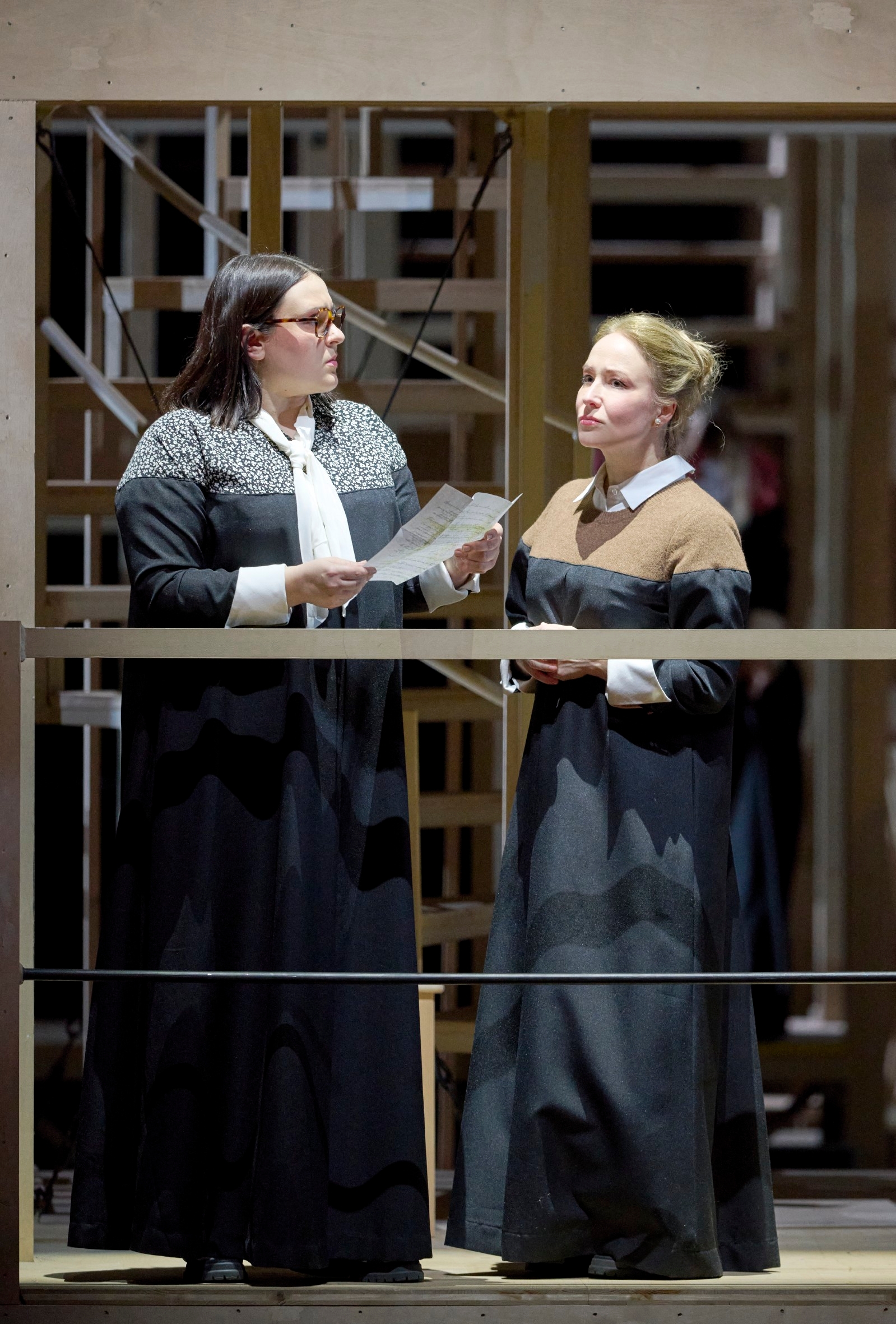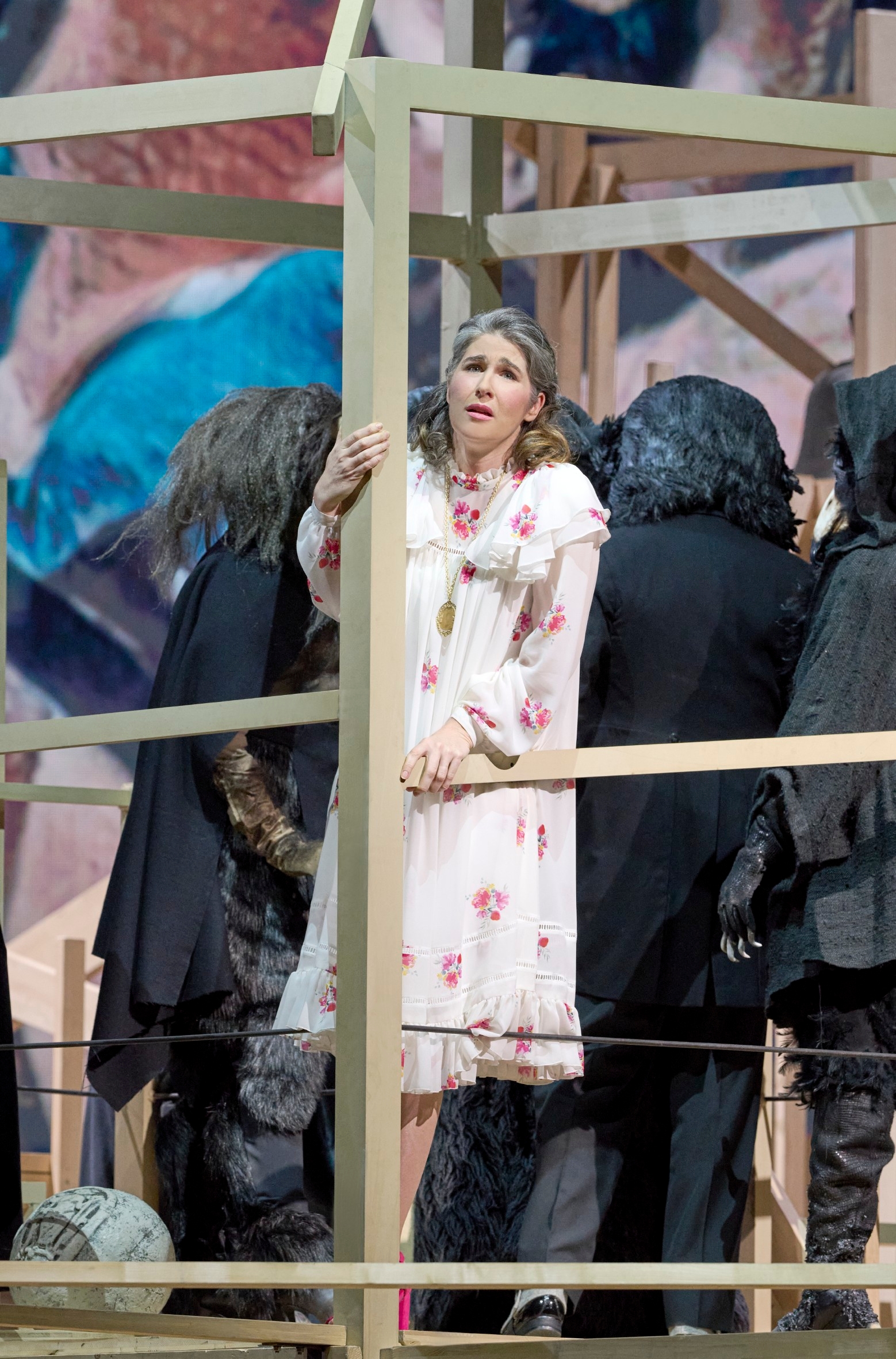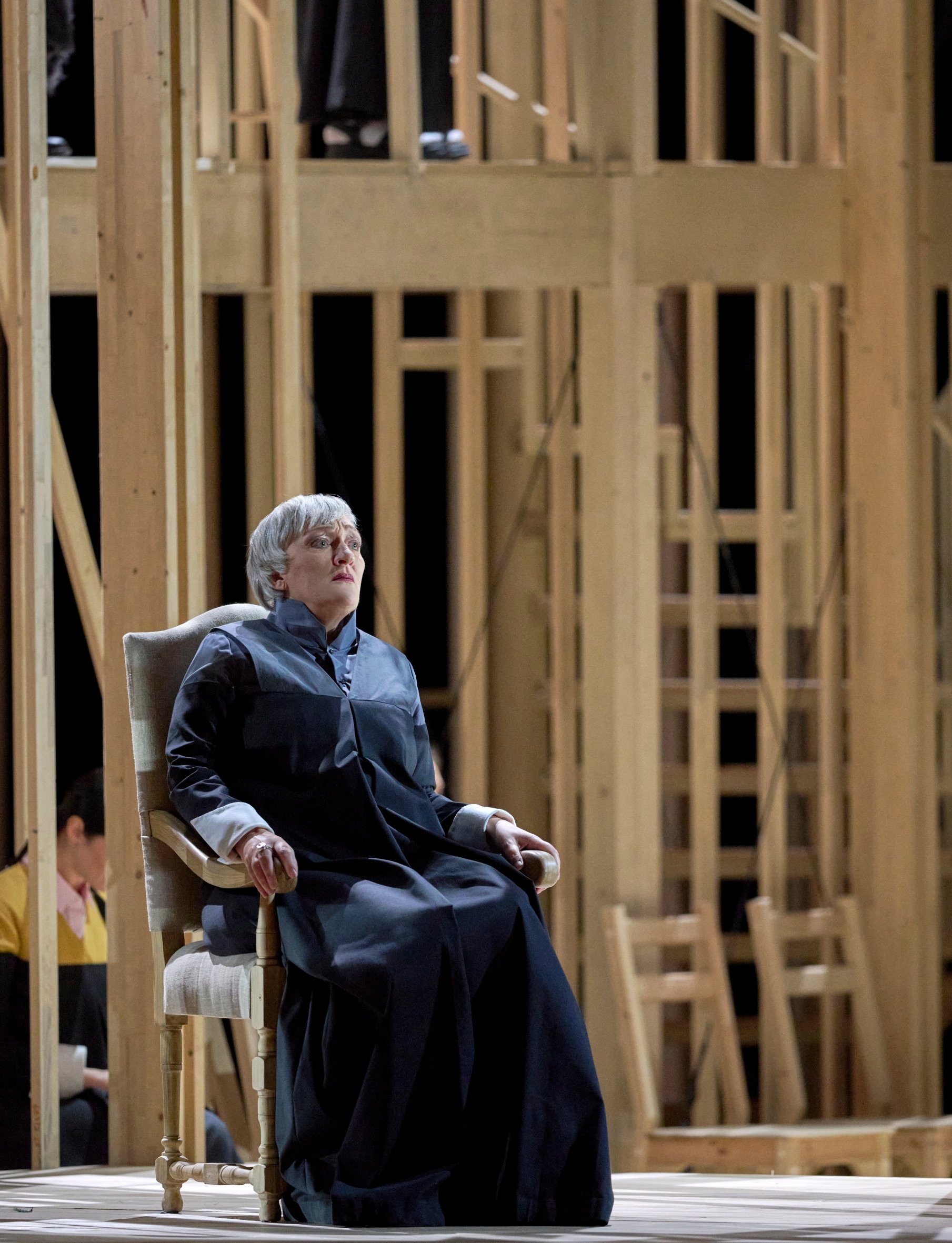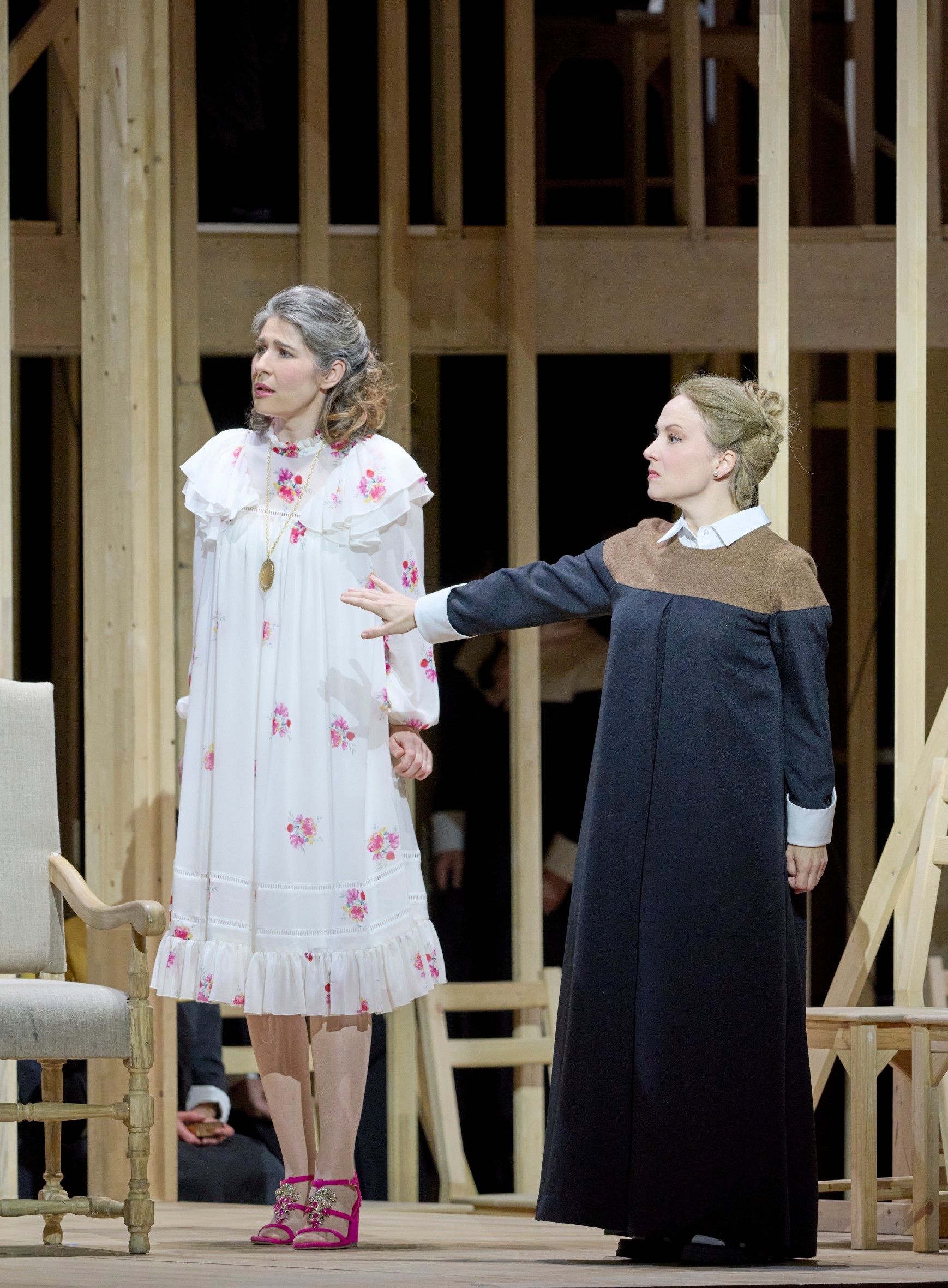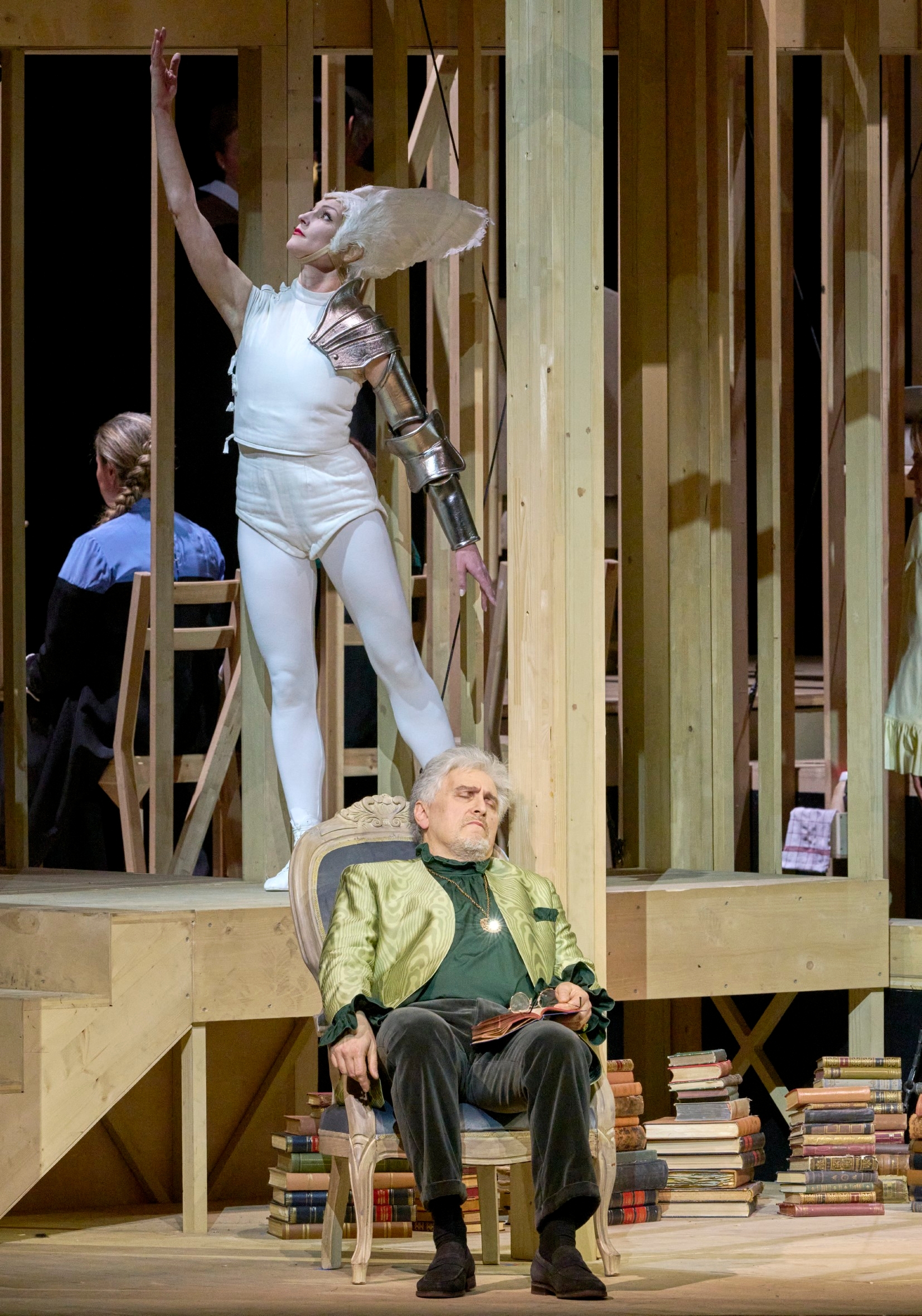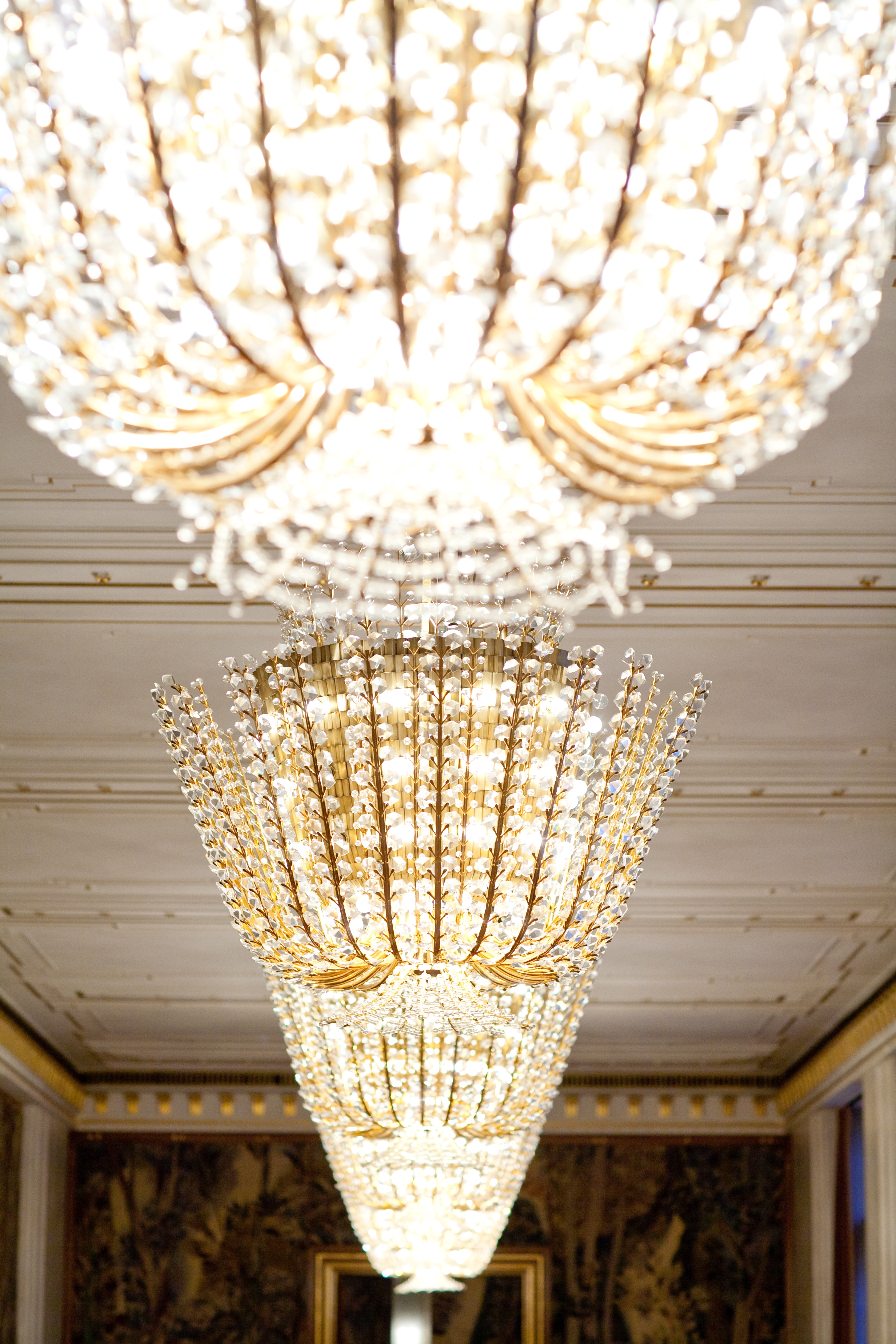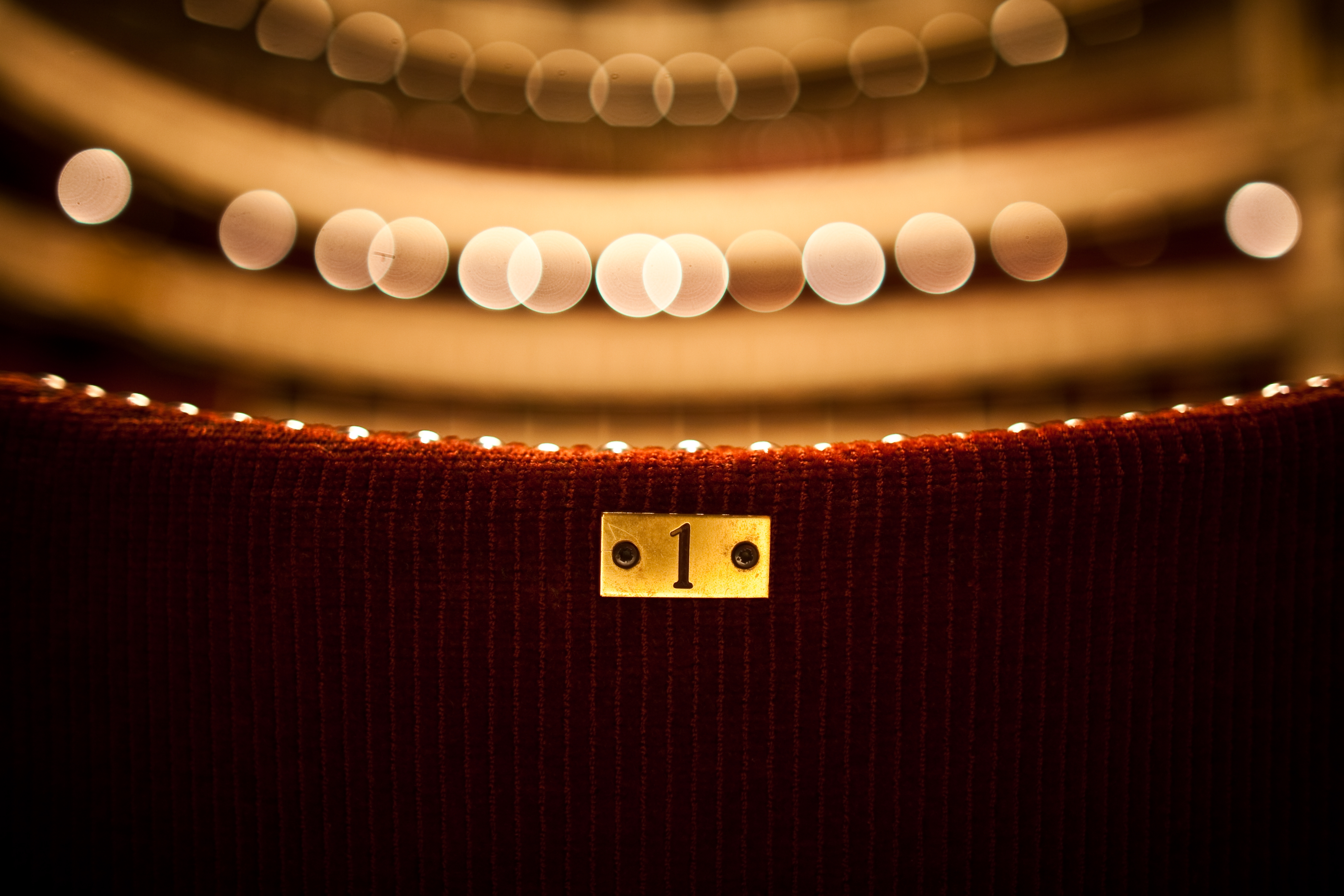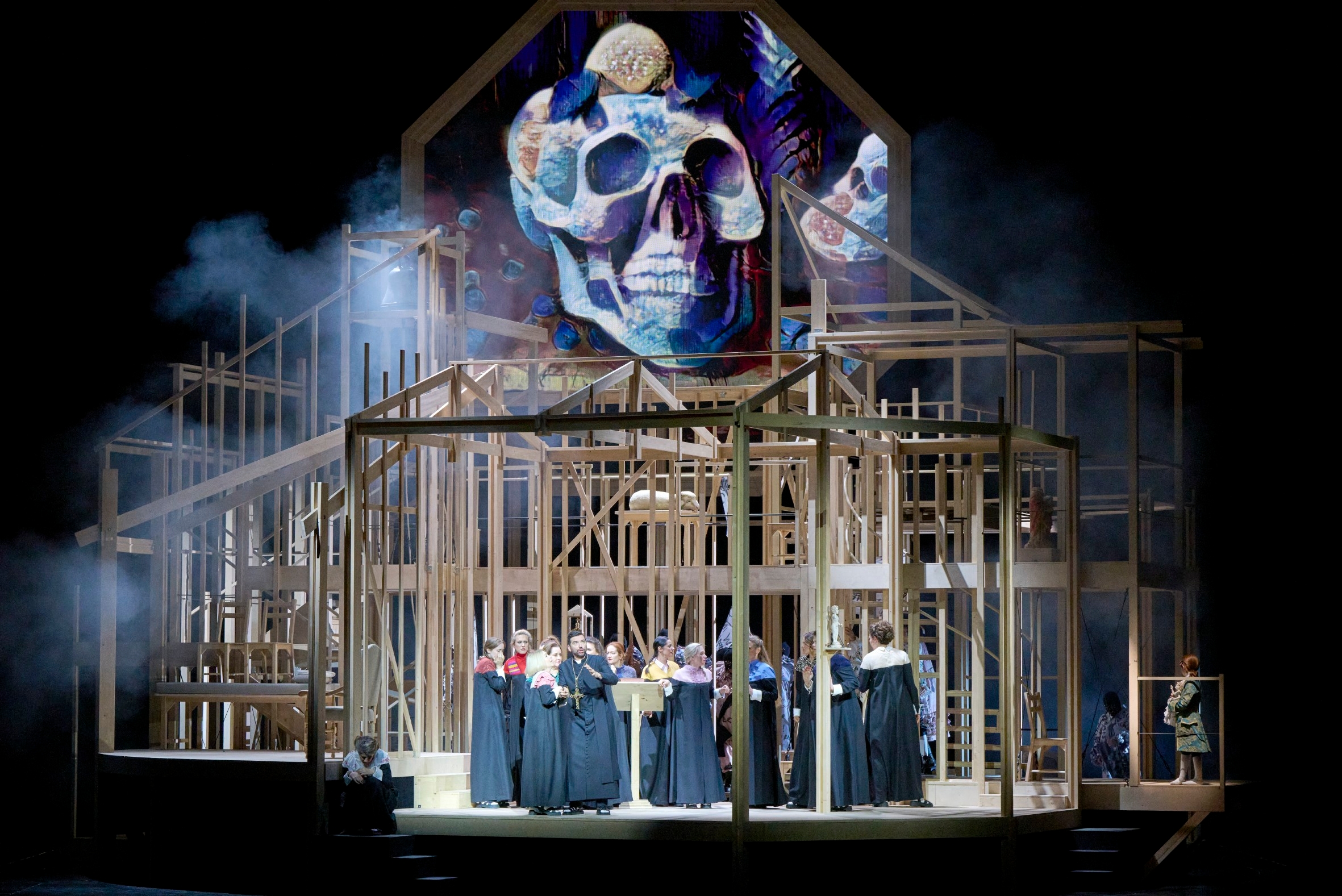
Short Summary
Compiègne near Paris, April 1789: In the Carmelite convent, the young noblewoman Blanche de la Force fights against her fear of death and for her goal of living a "heroic life".
In the midst of the Grande Terreur, the community is divided between the prioress Madame Lidoine, who urges humility, and the novice mistress Mère Marie, who preaches martyrdom for the faith. The latter prevails, and before the Revolutionary Guards ban the order, the sisters take their vows - except for the absent prioress and Blanche, who cannot withstand the pressure and flees. When the Camelites, condemned to death for counter-revolutionary conspiracy, go to the scaffold, Blanche joins the condemned.
Dialogues des
Carmélites
Storyline
In April 1789, while the Reveillon riots in Paris heralded the start of the French Revolution, the young Blanche de la Force announced a lasting decision to her father, the Marquis:
She wants to join the order of the Carmelite nuns of Compiègne. There, the young woman, who has been plagued by inexplicable fears since childhood, hopes to find relief and clarity.
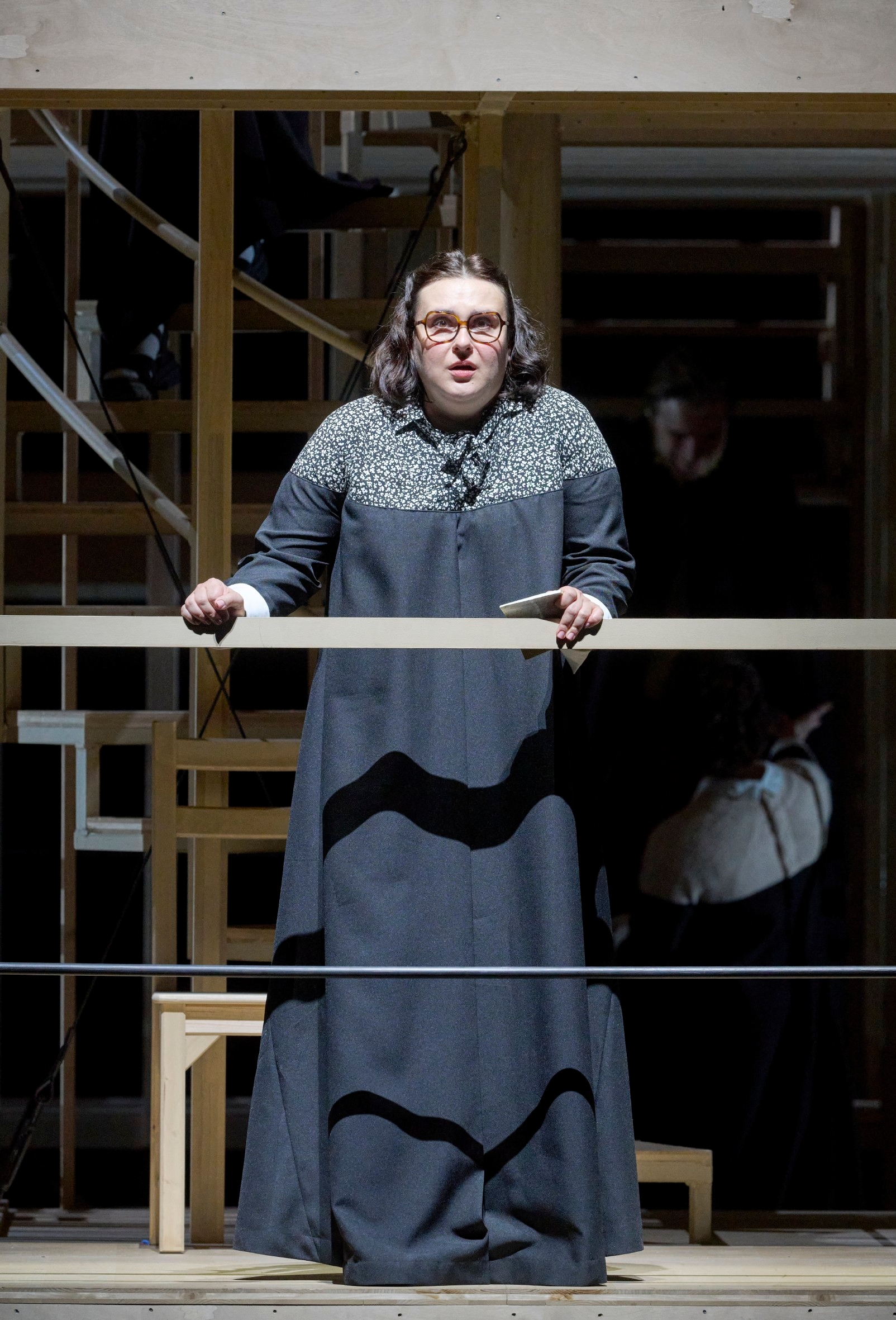
In the convent, Blanche, who chooses the religious name Sœur Blanche de l'Agonie du Christ (Sister Blanche of the Agony of Christ), witnesses the dying Prioress Madame de Croissy's agony at close quarters and is troubled by the young novice Sœur Constanze de St.-Denis with the vision that they would both die young and on the same day.
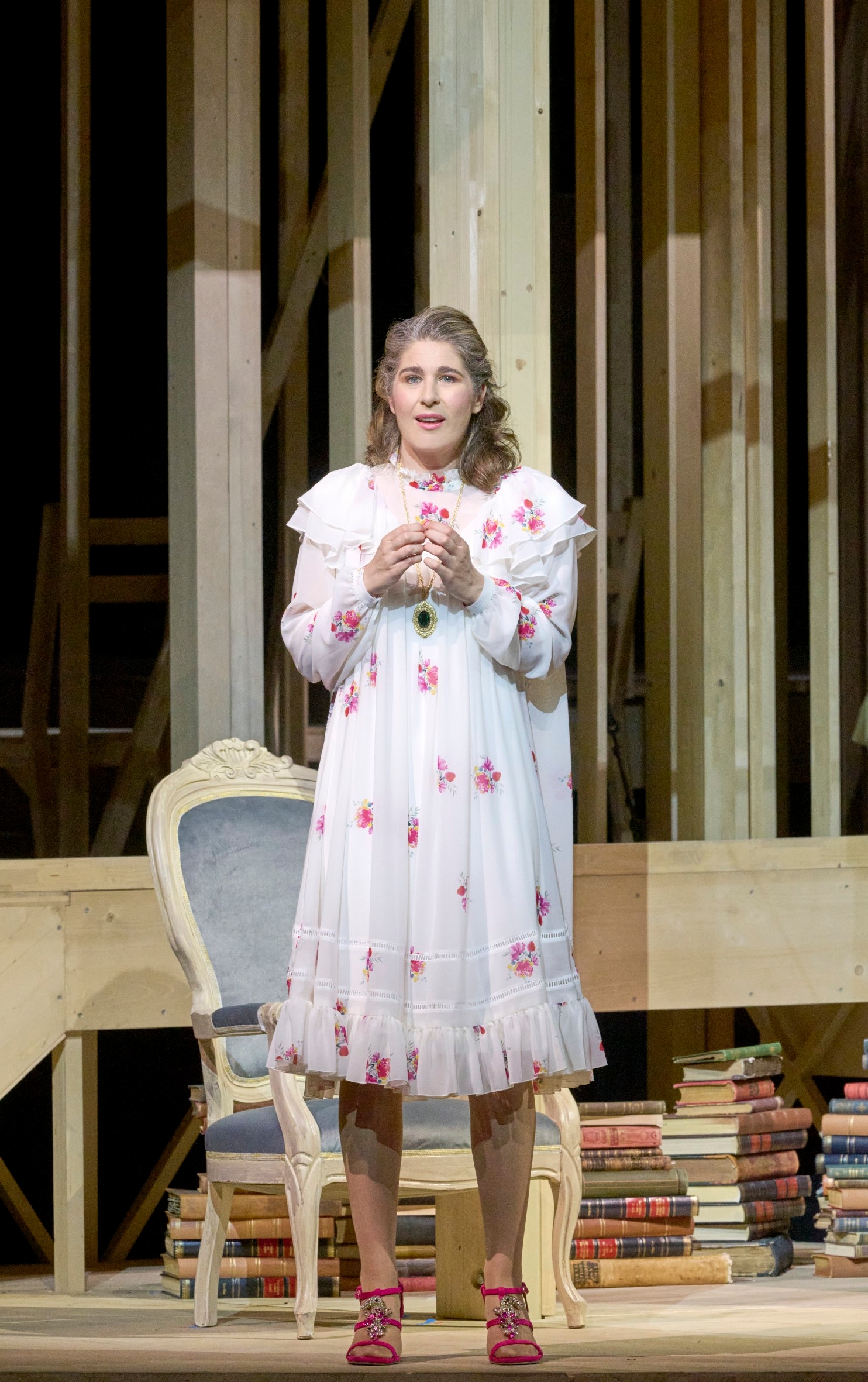
The new prioress, the bourgeois Madame Lidoine, swears the Carmelite nuns to prayer in times of incipient terror and warns them against a vain longing for martyrdom. When Madame Lidoine is summoned to Paris, the novice mistress Mère Marie de l'Incarnation arranges a vote that commits the sisters to martyrdom. Blanche is no longer able to cope with the pressure and her fear and takes refuge in the house of her now executed father, where she lives as a maid to the new owners.
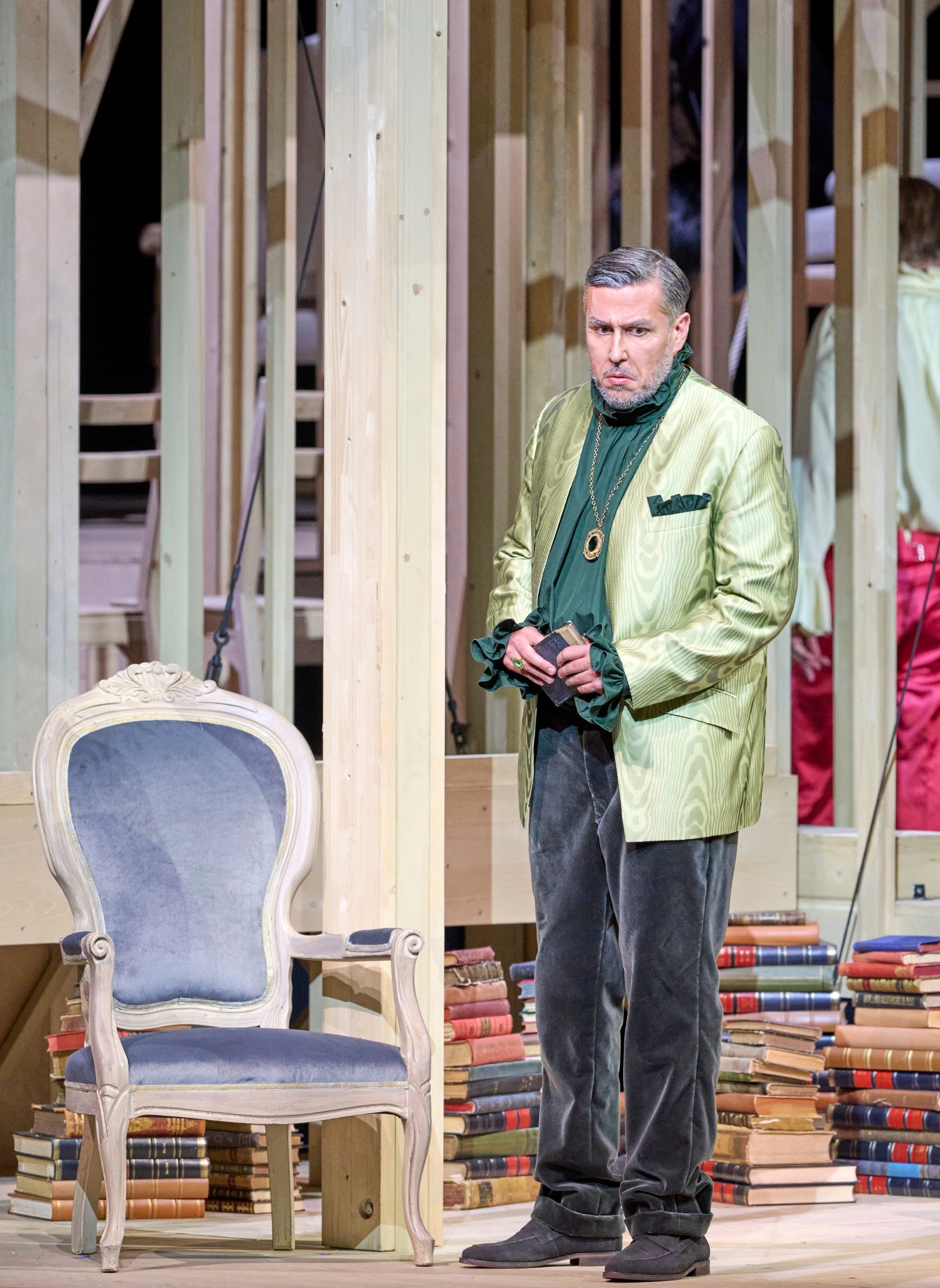
After the order was banned, the Carmelite nuns were initially declared citizens, but were then sentenced to death for counter-revolutionary conspiracy. The prioress was the first to go to the scaffold, while Mère Marie, who was not in the convent at the time of her arrest, escaped the martyrdom she sought. As the nuns go to the scaffold singing the Salve Regina, Blanche appears in the crowd. She joins in the chant and is the last to enter the scaffold.
The liveliness of the work is also due to the distinctive work with recurring motifs that characterize the characters, but above all set atmospheric accents of an uncanny richness of facets. Magdalena Fuchsberger's production takes up this diversity, leading the Carmelite nuns through the »apartments of the inner castle« to the scaffold in haunting images. The young Austrian director is currently attracting attention on small and very small stages with bold, yet perfectly crafted productions.
Francis Poulenc traces his characters in a captivatingly clear score which, like almost all of his compositions, moves within a tonal framework, more precisely in that of diatonic neoclassicism. Poulenc, whose great passion was song composition, is also a composer of voices and language here: the music serves the singing, the singing forms the characters, which Poulenc shapes with individual rhythmic diction and melody and lets them enter into the dialogues that give the work its title.
»Blanche, c'est moi«, wrote Francis Poulenc about the main character of his only full-length opera. »Blanche, that's me«. Here, the composer borrows the bon mot of another great French artist - "Madame Bovary, c'est moi" is what Gustave Flaubert is said to have said about his novel character. And like the quote, Poulenc appropriates the story of Blanche de La Force, who enters the Carmelite convent of Compiègne near Paris at the beginning of the French Revolution in 1789. The story of the 16 nuns of Compiègne, who were executed in Paris in 1794, forms the historically verified framework for a fictional plot in which the composer and librettist Poulenc tackles the ultimate human theme: The fear of death.
